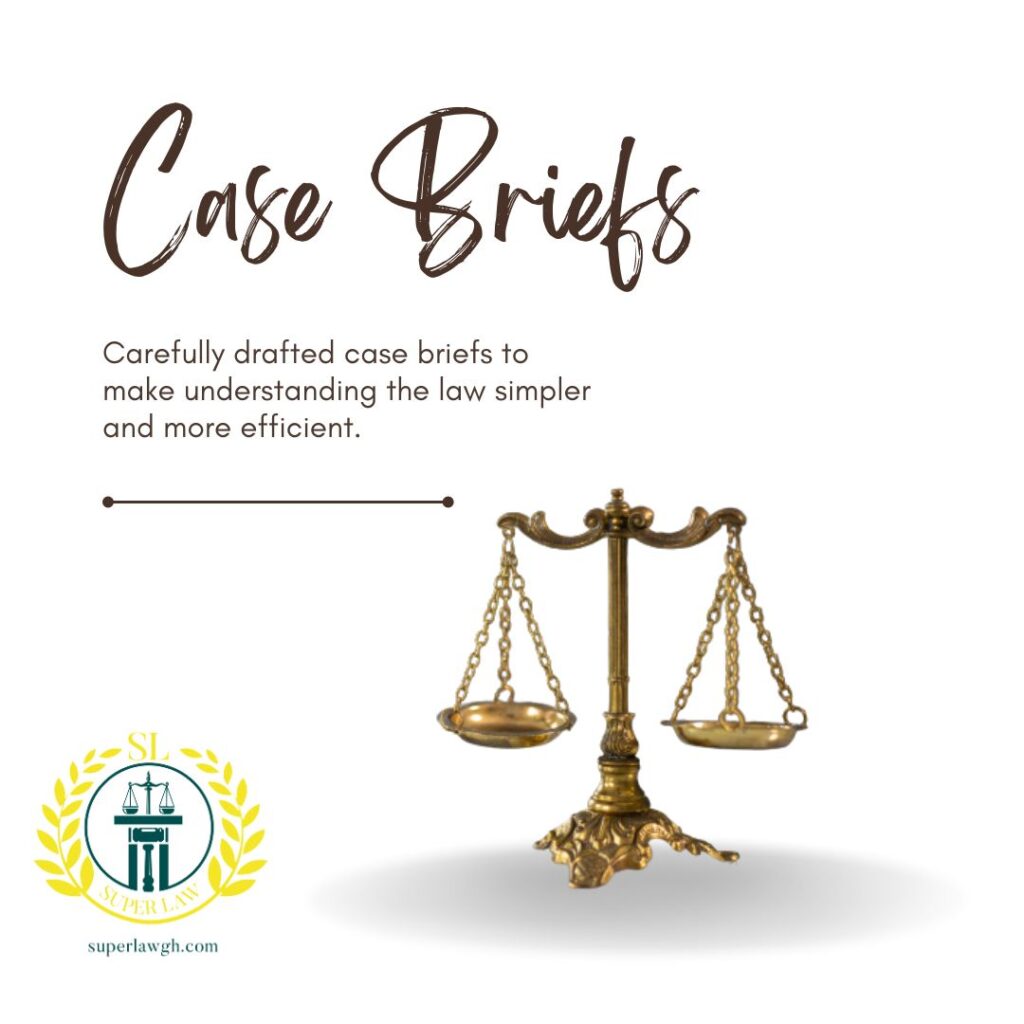Facts:
In this case, the plaintiffs, members of a registered co-operative union, broke off from the union and formed a limited liability company. The object of the company was to distil locally manufactured gin – akpeteshie. Officers of the co-operative union prevented them from distilling the gin. They were also harassed, and their products were impounded by the officers on the grounds, that they did not belong to any registered distilleries’ co-operative union and did not have a licence as required by regulation 3 (1) of the Manufacture and Sale of Spirits Regulations, 1962 (L I 239), which provided that:
Every applicant for the issue of a distiller’s licence shall be a member of a registered Distiller’s Co-operative.
And regulation 21 made it mandatory for a distiller to dispose of his products to specified persons or bodies by providing that:
21. Every distiller shall dispose of the whole of his production of spirits either to a registered co-operative or to a distiller or distillers directed to be placed under the control of the Excise Ordinance 1953 (No 31 of 1953) in pursuance of the provisions of the Act.
Main Issue:
The plaintiffs sued in the Supreme Court under article 2 (1) of the Constitution, 1992 for a declaration, that regulation 3 (1) and 21 of LI 239, which made it mandatory for an applicant to belong to a registered distillers co-operative as a condition precedent to qualify to get a license, was inconsistent with the letter and spirit of the Constitution, particularly the exercise of their fundamental right of freedom of association guaranteed under article 21 (1) (e) of the Constitution.
The defendants contended that regulations 3(1) and 21 of LI 239 were laws reasonably necessary for the security, safety and public health of the consumers of the local gin, akpeteshie, in terms of article 21(4)(c) of the Constitution, 1992. The defendants also sought to justify regulation 21 as law reasonably necessary under article 24(4) of the Constitution, 1992.
Holding:
The Supreme Court, by a majority decision (3-2), upheld Mensima’s claim. It was held that as an existing law, regulation 3(1) of LI 239 was inconsistent with article 21( 1) (e) of the Constitution, 1992 and therefore void.
- LI 239 or its parent Act did not empower the co-operative to make membership of their society a pre-requisite for the granting of a distiller’s license
Ampiah JSC said:
L I 239 does not show on the face of it why an individual or an association should become a member of a co-operative society before a licence is issued to him or it for the manufacture of akpeteshie. Although there is some provision in the parent Act to regulate the sale of akpeteshie, there is no provision in the parent Act to regulate specifically the requirement of a membership of a co-operative society as a condition for the issue of a distiller’s licence.
- Membership of a co-operative society was not a restriction reasonably required in the interest of defence, public safety,
public health within the meaning of article 21(4) (c) of the Constitution.
Acquah JSC:Indeed, elaborate provisions are made in Act 331 [the parent Act] and L I 239 to ensure the health, safety and security of the public. And in all those provisions, a registered distillers co-operative plays no part.
It is important to note that the Supreme Court held that regulation 21 was consistent with and did not violate the freedom of association guaranteed in article 21(1) (e) because although restrictive in nature, it did not leave the distiller without a choice; he was at liberty to sell his products to a registered co-operative or any of the distillers placed under the law.
Dissent:
Banford Addo JSC and Kpegah JSC dissented, indicating that the restraint placed on applicants to join registered co-operatives before being issues a distiller’s license was justified to safeguard consumers of the gin by ensuring effective monitoring.
Bamford-Addo JSC indicated: It is to be noted that section 2 of NLCD 252 [Co-operatives Societies Decree, 1968] is permissive, not mandatory, and does not compel registration; but in the case of distillers of spirits, it is a requirement under regulation 3(1) of LI 239 for obtaining the necessary licence to distil that the applicant must be a member of a registered distiller’s co-operative. This is to enable effective monitoring of the mode of production and the quality of the spirit produced in the interest of public health, a government economic policy.Considering the potentially dangerous effect on consumers of unwholesome akpeteshie, it seems it is necessary to ensure the quality of akpeteshie. Therefore, regulation 3(1) of LI 239 is not only desirable but most reasonable in the interest of public health.


